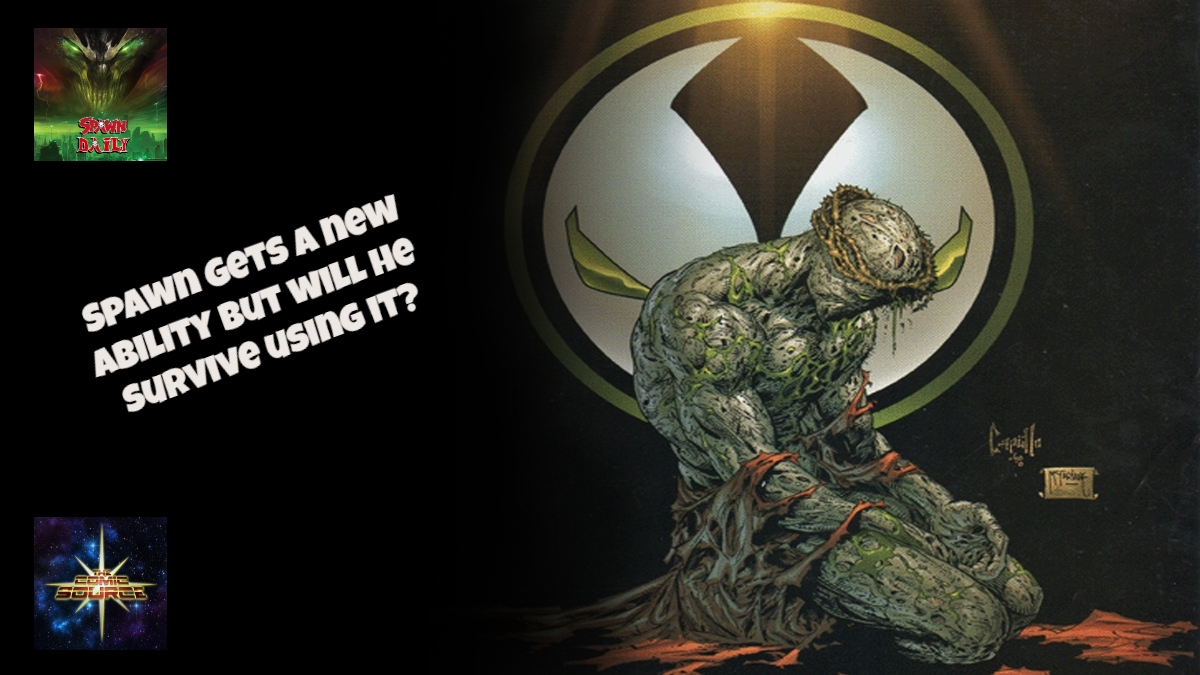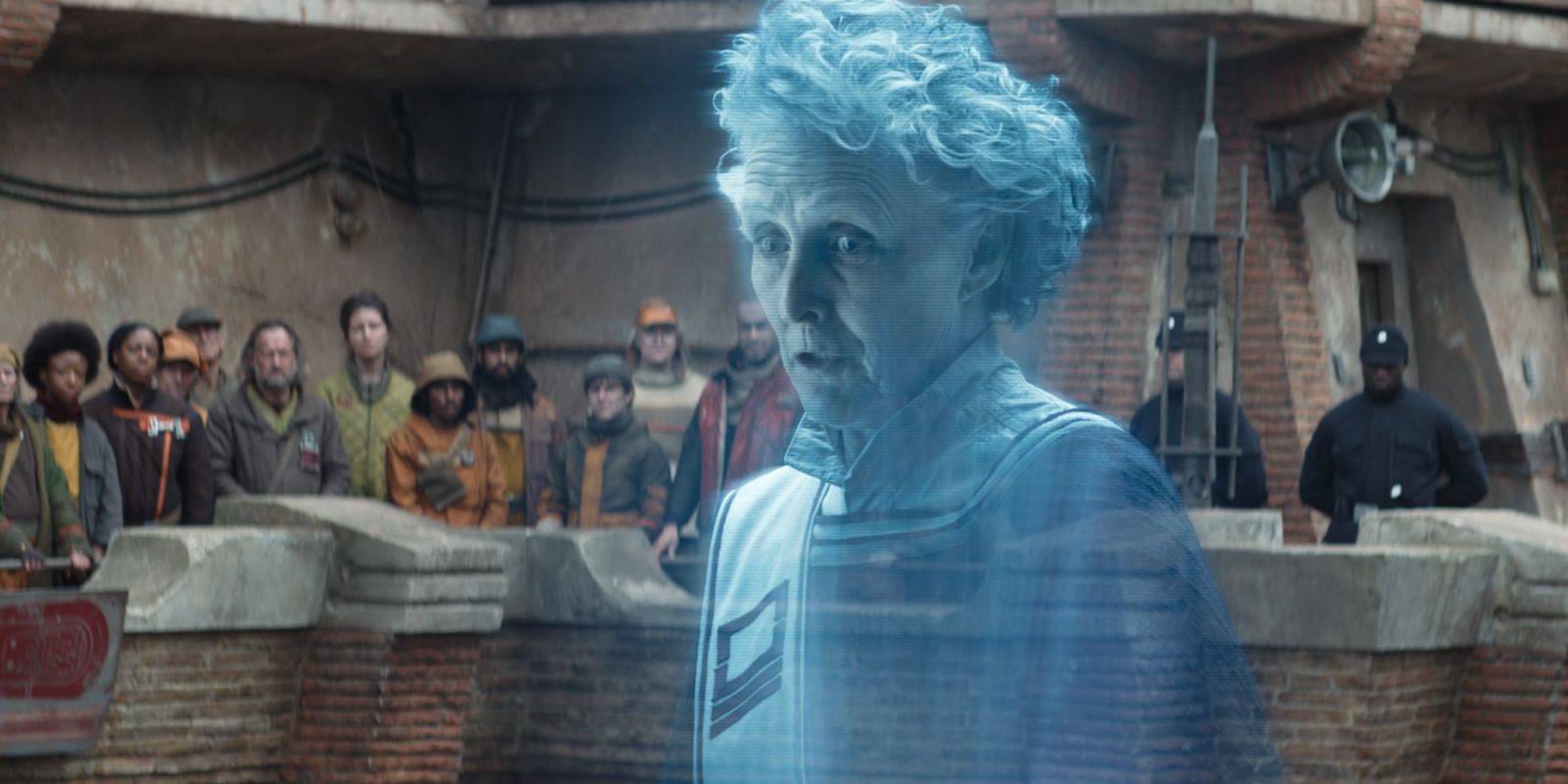Alien documentaries can be a dime a dozen. Very often, they’re either poorly researched, or have very little in the way of actual evidence surrounding them. But we live in a glorious age of information, and with that, things are finally coming to light about ourselves, and those who may lie outside our realm of understanding.
Earlier this year, we saw the release of the film Unacknowledged, and while that was a great sort of bird’s eye view of the conspiracy to cover up the unknown, the more recent Patient Seventeen, from filmmaker Jeremy Corbell, delves into this very subject at a more personal level.
This film follows one man — the titular Patient Seventeen. He is a man with abductive experiences, who has an unknown implant of his leg. He goes to Doctor Roger Leir, a surgeon who claimed to have taken out unearthly implants in the past, in search of answers. What is this unknown implant in his leg, and can it possibly carry with it implications of a much larger universe?
LRM had a chance to chat on the phone with filmmaker Jeremy Corbell and discuss Patient Seventeen. In our interview, we go in-depth on the film itself, delve into the mysteries of our world, discuss the importance of asking questions.

https://www.youtube.com/watch?v=V0xlPmXZMDw
Tell me a little bit about yourself and just in general, tell me a little bit about yourself and how you became interested in the subject matter of “Patient Seventeen.”
Jeremy: Sure, so yeah, I, like anybody growing up, found out about this phenomenon that people were calling UFOs. It was actually when I was 13 years old, and I heard this story of Bob Lazar by a man named George Knapp, who’s lead investigative reporter out of Las Vegas, Nevada. And he broke the story in 1989. So I got to hear this story as it was playing out, and I like to say that’s what really weaponized my imagination. It turned me from just being kind of curious about this subject to really interested to know if any of this stuff that sounds crazy, if any of it was true. And that was just from listening on a radio broadcast. Fast forward and George Knapp has been a mentor to me in journalism. It’s like a dream come true. But that’s how it started for me was hearing a broadcast over the airwaves about a man named Bob Lazar.
So what specifically led you to that specific subject? To the actual person. Saying like, “I want to follow this person and him trying to figure this out about himself”?
Jeremy: So, just backing up a little bit, my history in investigative filmmaking is finding people, ordinary people of high credibility, with extraordinary beliefs. So, my films are really about people who are trustworthy but have some incredibly extraordinary belief. That’s what my whole series is about. So, I tend to focus on, in my work, people in science and technology, people that I can verify their military record. That sort of thing. So I didn’t wanna touch this case with a ten foot pole. I mean, it was the most outlandish thing that I had heard within this strange field of UFOs, what I call the phenomenon, that UFOs are a part of. But I was convinced it was a compelling story when the doctor, Dr. Roger Leir, he like basically said, “Look Jeremy, I’ve been doing this for over 20 years. I wouldn’t waste my time. These objects I’m removing from people, they’re emitting frequency, they’re strange alloys with strange isotopes. It is something we can look at scientifically. You’ve gotta make this film.” And he pestered me and pestered me and finally I said, “Okay, I’ll make this film, but you know what I do and if you’re pulling the wool over the eyes of the public, I’m going to out you. So, do you want me to make this film on you?” And he said, “Yes.” So I said, “Okay, why not take an afternoon and go film an alleged alien implant removal surgery?” I mean, come on. How many times did somebody get to say they do that?
Right.
Jeremy: So that was how it started. But why it continued is because of Patient Seventeen himself. I met the man with this alleged implant from non-humans. And he was, and remains, like me. We are the two most skeptical people that this object has anything to do with his life experiences, where he feels, and is sure, that he has had an encounters with non-humans. So, he has had abductive experiences and this is not uncommon. Millions of people around the world claim this and that is a fact. A fact we have to deal with. In fact, John Mack who is head of Harvard Psychiatry, wrote many books on this, studied hundreds and hundreds of cases, almost got thrown out of Harvard University as the Head of Psychiatry because he took this seriously and he is quoted as saying, “This is not fictitious. It’s not a mental disorder. These events are tangible, physical, real, and are happening.” So reading stuff like that and starting to look at this more, that was the combination that made me decide to make a feature length film about this because it’s extraordinary, these claims. And I was able to do scientific analysis. And that was really what threw me for a loop, was what we found out.
Yeah, at the end of the film you guys have the implant analyzed, and one man was talking about how pretty much this is something from somewhere else, and even you, you seemed very skeptical at the end of it. What is your conclusion now since the film has been made? Have you changed at all? Are you less skeptical? Do you know for sure? Are you still trying to figure out what it is, exactly?
Jeremy: Well, so you know, the interesting thing is that for the patient. Look he’s a Christian and religious man, and he doesn’t want this to be something from an unearthly origin. So, you know, really what we could do is we did the first round of tests and that’s something you see in the film and oddly enough … I thought this was going to be a piece of a nail, road rash, you know, something from his childhood that just got lodged in there, but in fact, what we found out was that this small object has 36 elements in it. Not like five or something like you’d find in a common nail. 36 elements. And additionally, we found out through the isotopic analysis, and this is something that helps determine non-terrestriality on earth here, we study non-terrestrial isotopes and elements all the time.
We have meteorites. We have things that people can look at. So there are specialists that analyze these things and have shown open sourced these documents to a lot of different scientists who don’t appear in the film, and across the board everybody says, “We need more tests,” because depending upon their perspective, that influences the interpretation of the data. But the data clearly shows non-terrestriality, meaning the zinc was forged in the furnace of a supernova. Not ours. Not here on earth. So if these results are correct, which is something you need to do multiple tests to determine and make sure there’s not contamination. To make sure there’s not some flaw. If these results are correct, this object is from far, far away, like outside of our galaxy, far away. You can calculate distance, relatively, based on isotopic analysis. That’s how we know a moon rock is really a moon rock because the isotopes are different than here on earth.
Are more tests possible at this point?
Jeremy: This is something we’ve been fighting hard for ever since we got to this point. I do want to reiterate that the film is the first time in history that you have documented, by credible laboratories, an object pulled out of a man’s leg claiming abductive experiences, that has been proven through scientific analysis, to be completely anomalous. A lot was achieved with the film. At the same time, I hope that the film raises the bar for the aesthetic of filmmaking within this genre. That was my goal was to make it entertaining, but to not sensationalize something that is already sensational. So, on face value, I hope the film itself conveys a beauty and an intimacy, which you don’t usually get in a typical UFO based subject film.
Yeah, I think you definitely accomplished that. Like, a lot of the shots in there are really beautiful. The shots of Patient Seventeen at home, those types of things really, I think, add to the grounded feel to it. As well as your objectivity at the end, because at the end, I wasn’t quite sure. What does this all mean? “Is he saying for sure that this is an alien implant?” Rather than going that route, at the end, you expressed skepticism. In the face of these seeming confirmations, it’s nice to know that you’re doing your best to remain objective, you know, for the audience, who is likely coming in with a skeptical mind.
Jeremy: And I hope that everybody comes at this very skeptically. The only way to really … You know proof is different for different people. Like what you consider proof would be different than what I consider proof. It really depends on where you stand on the fence already about the UFO subject, what I call “the phenomenon.” I hope that this film moves the needle forward with questions. It makes people ask the questions and to forensically analyze every aspect of this film, both socially and scientifically. I want to move the bar forward.
I don’t wanna drag this along. I want people to participate and that’s why I hope this film is seen by a wide audience because there is so much talent out there of people who can help us with these types of mysteries, dealing with UFOs — which, by the way, UFOs, disks, flying saucers, that is a real phenomenon. There was just an announcement by Department of Defense and by Pentagon employees, one of the top engineers at Lockheed Skunk Works, I think you might’ve seen it. Tom DeLonge did an announcement, and people are missing the point. The point is our government knows that these anomalous aerial vehicles have invaded our airspace with impunity since the beginning of recorded human history. I mean, it’s a real phenomenon. We need to get beyond that. If we can get beyond that, we might be able to learn something from it.
So, in addition to you hoping to push forward the credibility of movies like this, as well as the overall aesthetic, what do you hope that the viewer takes away from this film?
Jeremy: Thanks for asking that question, and it really is the point here. I would like a large audience to view this, share this, talk about this and become active in the investigation itself. I mean, I kinda throw it out there like a joke. I wanna weaponize your curiosity, but that’s really real. I want the audience to stop being consumers of this information because of their interest and to start becoming participants and it’s really easy to do. It’s not just watching a movie. It’s talking about it. Talking to people you know. Asking them if they’ve had experiences or encounters. You wouldn’t believe the amount of the populace who has had firsthand, tangible experiences with this phenomenon that includes UFOs.
Have you kept in touch with Patient Seventeen at all? Has he felt any different since taking the implant out?
Jeremy: Absolutely. We are good friends now. I think we kinda bonded through this struggle together to fight to find answers and still trying to fight to find conclusive answers and look. He’s a six-foot-nine megalith of a man. He’s a good guy to have next to you when you’re hunting down, you know, these cagey scientists not wanting to give you the thing pulled out of his leg. So, yeah. His life literally turned upside down as he says in the film, once he met these UFO people, I mean. This is something he didn’t want to talk about. We want answers and he doesn’t want the public attention, doesn’t want to be known. It is a little scary for him to have a movie out there about him.
But you know, I’m telling him, “Look, people see how you are in this film.” I mean, That funny scene where he’s like arguing with one of the scientists, you know rolling his eyes at the fact this guy’s saying it’s non-terrestrial. He is committed just as he is in the film, so I think people will really feel connected to him and sympathy for him, and want him to get the answer.
Does he still think that the implant is from our Earth or is he more open to the thought that it’s from somewhere else at this point, now that he’s had time to sort of digest it?
Jeremy: There were a few things that really made his eyes as big as flying saucers, man, and they made mine too. Like, for example, one of the tests they did was a really rudimentary test. It was like a gauss meter test. It looks for electromagnetic fields. If you hold this meter to a battery like I did on my camera, it goes off, right? It pings. Every time they brought this thing by his leg, while the object was inside of him, it was pinging as if it was relaying a frequency. And unless they were grossly misusing this device, like you know, that was the first time his eyes kinda like, “Holy… let’s get this out of me.” But again, you see the humor in my movie, I hope. I mean, there were times when I hope you laughed. I mean, being skeptical, they were using a stud finder to look for this thing at first and I was scared because they were about to cut into him and they were misusing a stud finder. It was malfunctioning and I’m like, “You guys have optics, right? You have ultrasound optics before you do surgery?” I mean, it was hilarious.
That one thing, yeah that was hilarious. It was ridiculous. That’s a construction tool but you know, look, all that aside, the scientific analysis is pure. That is real. So that experience made his eyes grow big and then you know, I’d say, just finding out the results and having credible scientists, not even the ones shown in the film, but other people look at it, like I showed it to Jacques Vallee, who’s kinda the godfather of ufology, I mean the guy’s a scientist who created the first UFO database for Project Bluebook, the first acknowledged US study of UFOs. The guy’s been in the game a long time. He keeps kinda quiet as a scientist. I was able to compare notes with him and the samples that he has from crash sites of unknown aerial vehicles, and he too agreed, we need more tests. These tests do show something extraordinary but we need more tests to be definitive.
Anything else you want to let readers know about your film, “Patient Seventeen”?
Jeremy: Well, just, you know, thank you so much for you know, shedding a light on this topic because it is really out there. It’s, you know, it’s outer space man but at the same time, I think this movie will appeal to anybody. You know, if you like sci-fi or if you’re a scientist, or if you’re just interested in UFOs or even if you aren’t, this story is so compelling and I really just want people to know where they can watch it. That’s what’s important to me and it’s on iTunes and all other pay per view platforms right now. iTunes is a big one that I can say, but if you look at Amazon, Xbox, Google Play, all of those, they’re holding it. But go to iTunes, watch the film. Decide for yourself because there’s a lot more coming.
Check out Patient Seventeen for yourself on platforms like iTunes!
Don’t forget to share this post on your Facebook wall and with your Twitter followers! Just hit the buttons on the top of this page.

 FOR FANBOYS, BY FANBOYS
Have you checked out LRM Online’s official podcasts and videos on The Genreverse Podcast Network? Available on YouTube and all your favorite podcast apps, This multimedia empire includes The Daily CoG, Breaking Geek Radio: The Podcast, GeekScholars Movie News, Anime-Versal Review Podcast, and our Star Wars dedicated podcast The Cantina. Check it out by listening on all your favorite podcast apps, or watching on YouTube!
Subscribe on: Apple Podcasts | Spotify | SoundCloud | Stitcher | Google Play
FOR FANBOYS, BY FANBOYS
Have you checked out LRM Online’s official podcasts and videos on The Genreverse Podcast Network? Available on YouTube and all your favorite podcast apps, This multimedia empire includes The Daily CoG, Breaking Geek Radio: The Podcast, GeekScholars Movie News, Anime-Versal Review Podcast, and our Star Wars dedicated podcast The Cantina. Check it out by listening on all your favorite podcast apps, or watching on YouTube!
Subscribe on: Apple Podcasts | Spotify | SoundCloud | Stitcher | Google Play









